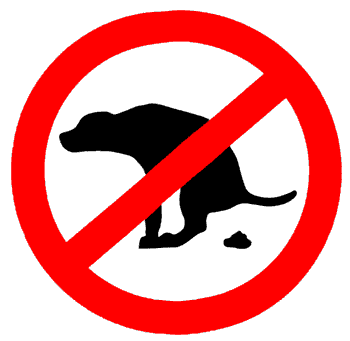Colitis is really uncomfortable and unpleasant – and it doesn’t just affect us humans. Your dog can suffer with this too and it has many causes. So, what actually is colitis?
The colon is part of the intestine and is responsible for doing things like collecting the fibrous parts of the diet that the dog isn’t able to digest properly, storing stool (poo), absorbing water and also extracting any extra nutrients that haven’t already been taken out during digestion.
The word colitis when broken up into its Latin parts literally means inflammation (‘itis’) of the colon (‘col’) and can relate to either the large or small intestine.
Colitis can come on suddenly (sudden onset colitis) which is considered an “acute” condition or it can take place over several months and be episodic or “chronic”. If you suspect that your dog has episodic colitis, please see your vet for further investigation and treatment as this can be anything from a change in diet to hardcore medication.
Recognising the Signs & Symptoms of Colitis
If you don’t know the symptoms to watch out for, your alarm bells wont be ringing when they should be, so here’s the sort of things to be aware of:
Number one is the appearance of the stool itself. Commonly the biggest sign is diarrhoea – hardly a surprise that this would be the main thing on your list (and probably a difficult one to miss!!) On the other hand, it may be more of a slimy consistency rather than full-on watery diarrhoea or perhaps seem normal to start with and get more runny towards the end of the stool.
Presumably, as the good and responsible dog owner that you are, you will go straight over to pick up the poo. You may notice that it seems more slimy than usual, or coated in a mucus, and in a lot of cases you may also see fresh blood in the poo too.
Next, we look at how the dog behaves. When your dog goes to relieve himself, you may well notice that he has to go all of a sudden. This urgency to poo, often with lots of straining and pushing rather than the usual behaviour is a strong indicator that something is not right. Overall, we would not expect your dog to have any actual weight loss.
Causes
Causes for colitis can be anything as mundane as simply scavenging something that doesn’t agree with them, a change in their usual diet or perhaps the introduction of a food that is too rich, an intolerance or allergy to something in their diet, a stressful situation like the move of house, introduction of a new dog to the family, change in routine etc and these type of causes usually result in the “sudden onset” form of colitis.
Treatment for such sudden attacks would obviously include feeding a more agreeable diet if you know what was eaten in the first place that caused the trouble (particularly if you have a “bin-raider”), helping the dog as best you can to acclimatise to the new situation in their lifestyle, or perhaps looking at the diet to pinpoint if there is a particular element to it that could be causing the intolerance. Increasing the fibre in your dog’s diet can help dramatically to get him over the episode too – such things as bran or unsweetened pumpkin flesh in their meal can really help.
If the condition goes on for months rather than days, and is “chronic” in nature, then it is important that your vet is able to get to the bottom of the problem and diagnose the cause so that appropriate treatment can be given. Causes for this type of colitis range from parasitic triggers such as Whipworms and also problems with the dog’s ability to produce digestive enzymes in the pancreas. Your vet may opt simply to treat the dog for Whipworm first and, if this does not work then perhaps look at taking stool samples to look at under the microscope or even more invasive investigations such as a biopsy or colonoscopy (placing a camera up into the colon to see what the lining itself actually looks like – just as we do with humans suffering this condition).
Once the vet has ascertained what is going on, he will decide on a treatment plan and this can be anything from various different anti-inflammatory medications, a high fibre diet specifically designed for colitis, a steroidal approach or may be what is called an elimination diet. An elimination diet is one where the dog is fed only one specific food for around two months to see if there is any change to the condition. This approach is tried with various foods until the trigger intolerance is detected and can therefore be avoided in the future.

